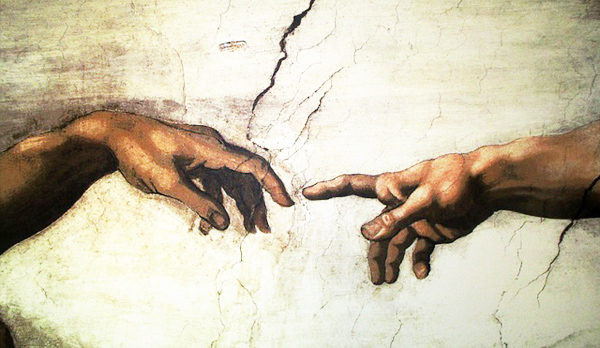From the outset of any discussion about God, his being, and his attributes, there must be the open admission that we cannot possibly fully comprehend an infinite God with our simple and finite minds. Yet, because God has revealed certain things about himself in his Word, the Bible, we must strive to describe God so as to communicate and understand who this God is and how he reveals himself to us. While we cannot fully define God, our best description is nonetheless necessary.
God
Should We Try to Prove God Exists?
Paul contends in Romans 1:18-22 that, although God is invisible, his works are a visible proof of his actions and existence. Everyone realizes, in their heart, that there is a God; but many try to suppress this knowledge even from themselves.
What Does It Mean For God to Be Our Father?
In Christ Jesus you are all sons of God, through faith (Galatians 3:26). At a men’s breakfast some time ago, I shared the following thoughts about what it means for God to be our father. If you are not a father it should bless, humble, and encourage you; if you are a father it should bless, humble, and inspire you to be a better father — a father more like God. Here are at least 15 implications from Scripture to the profound truth that God is our father:
God Is Happy! (And So You Should Be Too)
Although we often think and talk about God being good, loving — and even wrathful — the truth is that God is also supremely, perfectly, and always happy. One of the best modern equivalents for the idea of “blessedness” in the Greek language is “happy.”
FAQ: Is It Ok to Have Doubts About God?
This series of brief videos offers bite-sized, meaningful answers to commonly asked questions. We hope they will be a help to you! Please also share them freely. If you would like to submit a question of your own, please note the contact info at the conclusion of the video. We look forward to hearing from you!
God Is Not Man
Australian historian and philosopher John Dickson points out an almost undeniable paradox in Western culture and spirituality: You might call it a spirituality of distraction. It’s not that we don’t think about the “great things,” it’s just that we find the distraction of the “lesser things” easier to handle. Three out of four of us believe in the existence of God and the reality of the afterlife, according to the most recent research, but you’d never know it just listening to the conversations at work or in the pub, or to the public discourse in the media. We have this





